Main Second Level Navigation
Breadcrumbs
- Home
- News & Events
- Recent News
- Becoming a doctor: reflections from the Class of 2T5
Becoming a doctor: reflections from the Class of 2T5
What makes someone want to become a physician? For five students from the graduating MD Class of 2025 at the University of Toronto’s Temerty Faculty of Medicine, the answers are as unique as they are personal. As they prepare to cross the convocation stage and look ahead to residency, they share what drew them to medicine, what they’ve learned along the way, and the advice they have for those just beginning this journey.
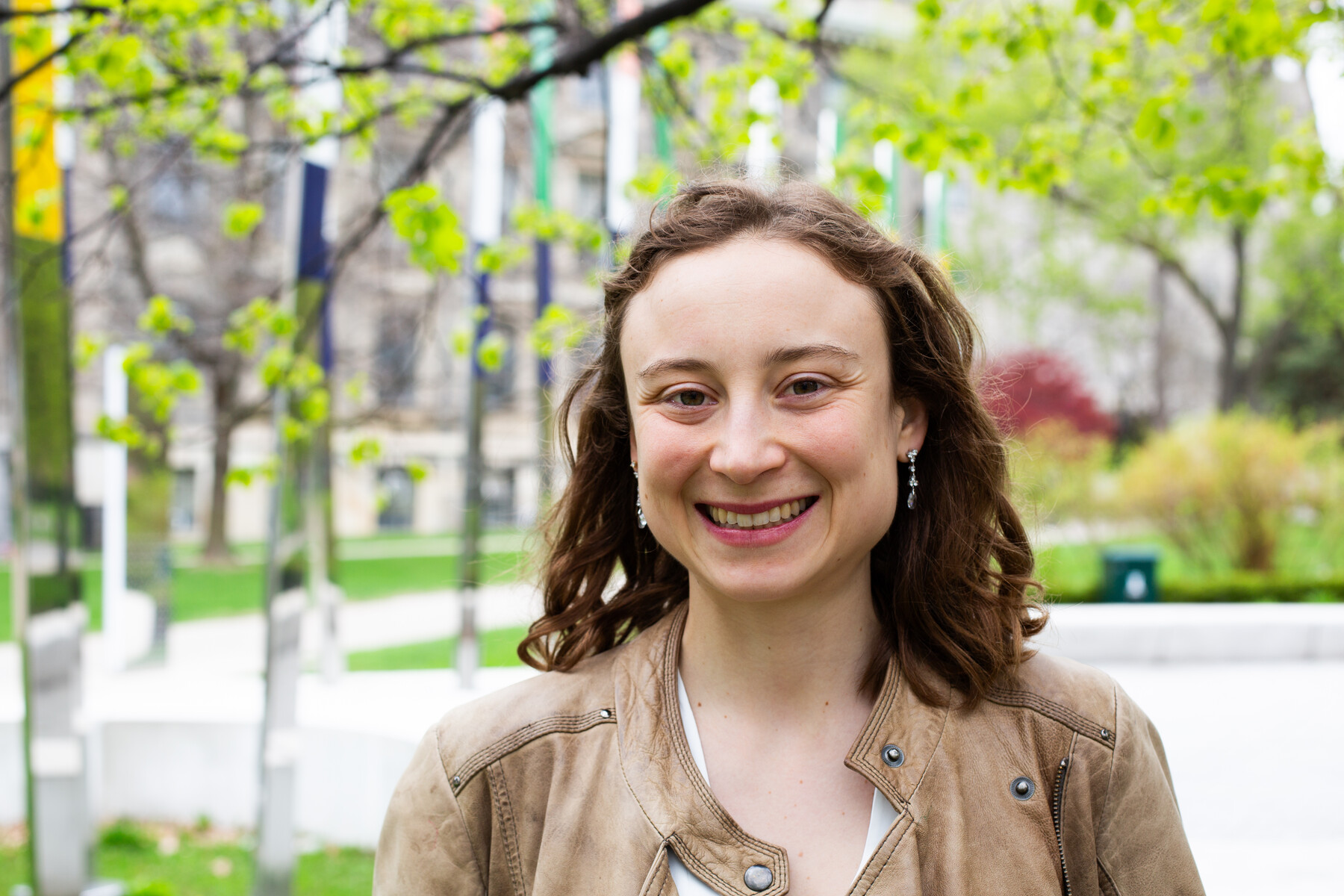
Hannah Kozlowski
Up next: Internal medicine, University of British Columbia
I made the decision to become a physician in high school. I took pleasure in working with people, learning about their lives and I was fascinated by the concept that each person's body and biology was unique. Two people may take the same medications and have very different reactions. It was later during my undergraduate degree at U of T that I came to love research. I loved the problem solving and the working in large collaborative teams to come up with solutions. Researchers have the ability to change the lives of thousands or millions of people who they have never met; the reach is amazing. When I learned that I could combine medicine and research, I dedicated myself to becoming a clinician-scientist and that is a road I am still on.
The people I met while at Temerty Medicine have been inspiring. I remember going for dinner in my first month of medical school. There were students my age and older and I was so impressed by their accomplishments. Over the years I had the opportunity to get to know these students and bond with them. Not only were they incredibly smart and resourceful, they were kind, too. They were some of the best people, all-around, that I have met. Their contributions to the community, inspired me to continue being an active member of the MD/PhD community, no matter how busy I become.
I am excited to move to Vancouver for the next stage of this training process. Internal medicine residency at UBC will allow me to continue working in global health and conducting translational research. I am excited to move to such a beautiful city. The ability to see the mountains every day is something I hope to never take for granted. Secondly, I am looking forward to honing my clinical skills and learning how things are done in a new clinical environment. I have been at U of T and part of the TAHSN hospital system for more than 10 years now. I hope to gain a new perspective, which I can bring with me wherever I go next.
When it comes to what I’m most passionate about, it’s two things. One, I love listening to my patient's life stories. Being a medical practitioner is a privilege. Patients who have never met us, trust us with their care. By understanding my patients, I hope to incorporate their unique values and experiences to provide excellent care. Secondly, I am passionate about bringing new technologies from scientific labs to patient care. During my PhD, I worked with Dr. Warren Chan to developed highly precise, molecular diagnostic technologies that can be used outside hospital laboratories. My team and I detected bacteria causing bloodstream infections and then developed a diagnostic test for COVID-19 during the height of the pandemic. I want to continue developing new diagnostic tests so my patients can receive correct diagnoses sooner and so that people living outside big cities can still receive reliable and timely diagnoses. I do not believe that cost or distance to hospital should be a barrier in receiving quality medical care.
Advice for incoming students: Spend time during your first few years of medical school getting to know who you are. The decisions you make during medical school will shape the rest of your life and you do not want to do that in haste. Take time to reflect on your patient experiences, on the tasks you enjoy doing (or not), on the importance of your hobbies, on what makes you happy, on your relationships. When something in medicine makes you happy, take some time to think about what specifically makes you happy. Is it the people you worked with that day, the outcome, the process? Medicine is so fast paced, it is easy to get caught up, but taking time to reflect can help you make the decisions that are right for you. Get to know yourself.
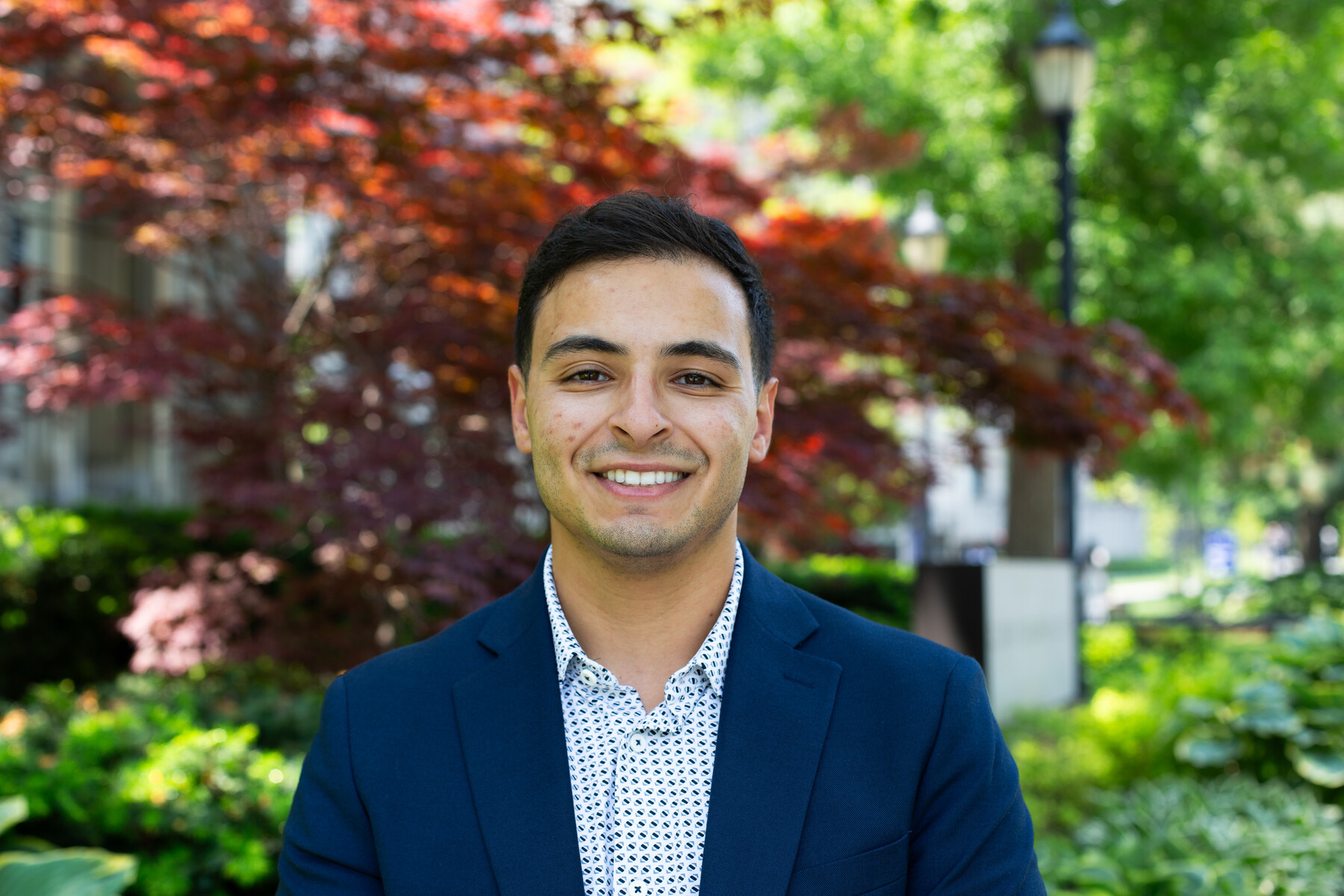
Andrew D'Elia
Up next: Plastic and reconstructive surgery, University of Toronto
Coming from a family with no history in the medical profession, pursuing medicine was a bit of a leap of faith. From a very young age, I knew I loved science, and I craved social interaction/connection with others. I loved learning about how technology and living things worked, and quickly became the in-house IT consultant in my family. My interest in technology led me to pursue undergraduate training in Biomedical Engineering, where I studied theory and design thinking strategies to develop solutions to health care and industry challenges. I was particularly drawn to biomaterials fabrication and tissue engineering due to their potential applications in regenerative medicine. This led me to specialize in biomedical and materials engineering. Alongside my exploration of coding, computer design, and prototyping, I learned that I also really enjoyed interacting with clients (usually patients), who would share their stories as we worked in teams to engineer solutions to challenges in their daily lives. While being part of the design process was deeply rewarding, creating a relationship with patients and feeling my efforts directly impact their lives was even more so. It was for this reason that I ultimately decided to pursue a career as a physician.
One of the greatest highlights of my time at Temerty Medicine has to be my time as coordinator of the Class of 2T6 orientation week. Back then, we were still in the beginnings of the post-COVID world, and fostering connection between members of the class was really meaningful to me. It was a privilege to work with the team on a whole week of events designed to make the incoming class feel welcome and supported. Other highlights were the close friendships I built here. I look back with fondness at countless nights spent studying, epic world excursions and weekend trips, and nights at the various parks, beaches and restaurants in Toronto together.
In my senior years of the MD program, I had the opportunity to develop rewarding mentorships with a number of junior students, and I am so grateful to have made a positive impact on their program experience. I also had the opportunity to work with MD Program faculty on various initiatives in admissions and curriculum reform, leveraging my experiences in the program to leave it better for those that come after me. Learning the ropes of curriculum development and program evaluation has been really exciting for me, and has sparked an interest in future work within medical education.
I am thrilled to be starting my residency in plastic and reconstructive surgery. My journey to plastics was strongly motivated by my background in biomaterials and tissue engineering, a research field I have been exploring since my first year of undergrad. Contrary to the public perception of plastic surgery as a simply cosmetic specialty, I was surprised to learn early in my medical training that plastics is a highly innovative field, calling upon engineering principles to restore and/or improve human form and function. Surgeons operate all over the body, treating conditions including skin cancers and soft tissue infections. They perform surgery of the upper limb, skull, cancer reconstruction, and nerve surgery. It’s rare that someone finds a career that enriches so many passions at once — the opportunity to combine my interests in hands-on work, engineering, and research made me quickly realize that plastics was for me!
Advice for incoming students: Medical school is an immense privilege. While you may expect to learn all about the signs and symptoms of various diseases and how to treat them, you will be surprised to learn that medicine goes much deeper than that. Not only will you learn the lives and lived experiences of your patients, but you will be pushed to learn a lot about yourself too. Here are the best pearls I can provide:
- You deserve to be here — and not just because of the high grades and countless accomplishments you have to your name — but because of the unique talents and lived experiences you bring to the table.
- Humility is important but not everything, don’t forget how capable you are.
- Don’t forget to nourish your relationships. They are invaluable. They are the only cure when you are feeling lost.
- Time is precious. Don’t forget to come up for air every once in a while. Take the trip. Treat yourself. See a friend. Visit home.
- Don’t ever do anything solely for a career application. Follow your interests and let the quality of your work and your character speak for itself.
- You may feel: You have no idea what’s going on. You’re out of your depth. You’ve taken on too much. You’re not good enough. You’re scared. You’re lost. You messed up. You disappointed someone. You disappointed yourself. The sky is falling. If so, you won’t be alone. In the wisest words of my 100+ year-old patient: Keep pushing. Don’t coast.
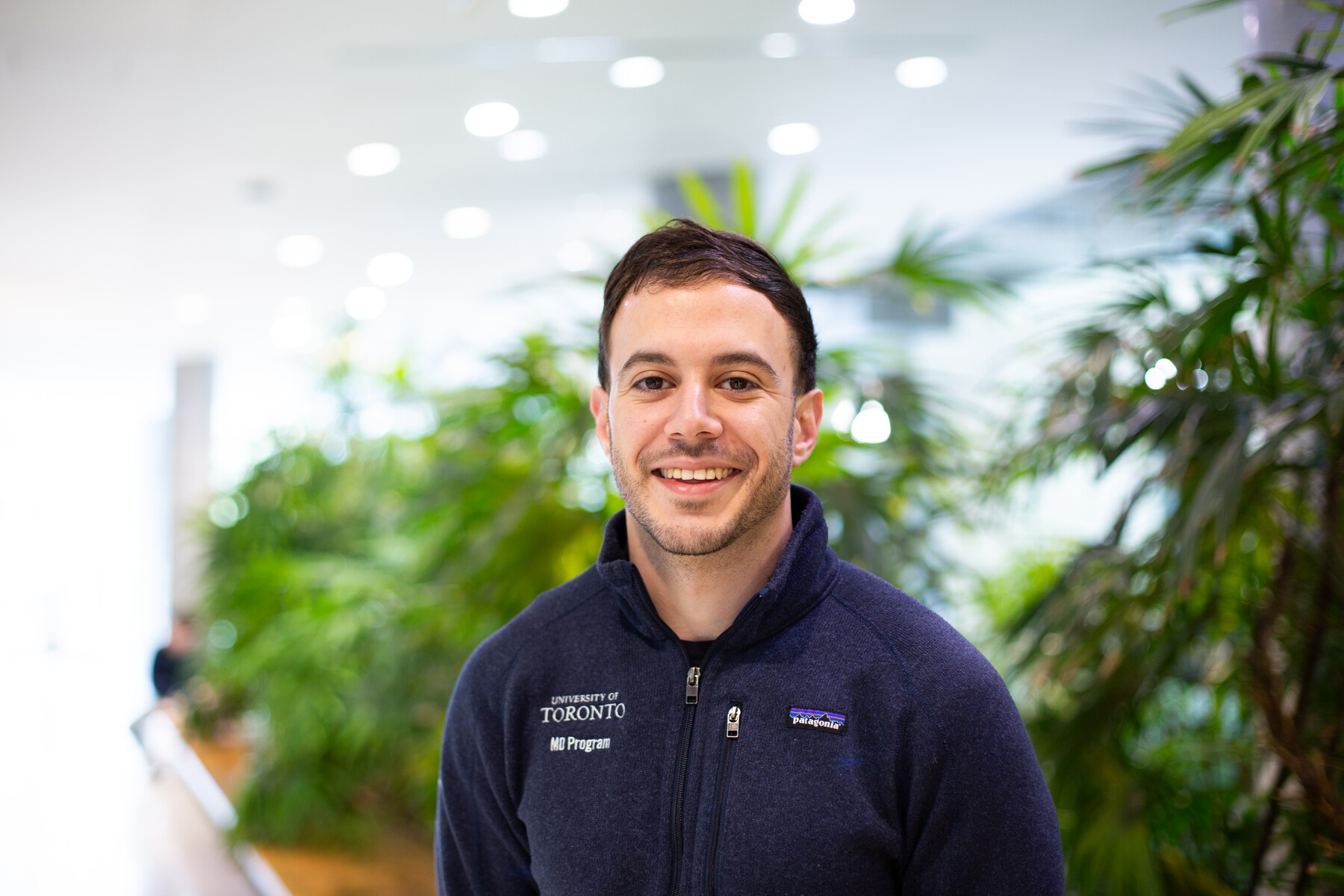
Zizo Al-Daqqaq
Up next: Urology, University of Ottawa
Growing up, I wanted to be a professional soccer player. I was drawn to the idea of something with no ceiling, a pursuit where you could keep growing, refining, and pushing yourself. As I got older, I realized that medicine, among other things, offers that same kind of infinite horizon. I trained as a registered nurse before starting medical school, and it taught me how much of your identity is tied to what you do. I’ll be honest, it felt pretty special to imagine introducing myself one day as a doctor. There weren’t any physicians in my immediate or extended family, but the idea of stepping into that role and building something from the ground up made it all the more motivating.
Early in medical school, I worked part-time as an RN in orthopedics and was encouraged by some fellows to explore urology. They saw in me the right mix of an easygoing demeanor, strong work ethic, and love for procedural work. I did a bit of shadowing, dipped my toes into research, and that was it. I found my people, and I found my path.
Having worked in many different health-care settings as an RN, including intensive care, public health, and inpatient medicine/surgery, I felt very well prepared for my clinical years of medical school. Entering medical school with an established comfort in clinical settings allowed me the freedom to focus on learning over logistics. I could spend time in the OR focused on the surgery, rather than worried about where the medical student should stand.
My greatest moments at Temerty Medicine. . . . I helped build a bit of an intramural dynasty with our soccer and ultimate frisbee teams, which brought me so much joy and community. I lived with my two best friends, Matt and Bhadra, fell deeper in love with medicine and surgery, explored research and teaching, and made memories traveling with friends. One of the most meaningful experiences was serving as class president over four years. It gave me the chance to support and connect with nearly all 281 of my classmates. As someone who grew up taking care of my family, being able to do the same for my class gave me a deep sense of purpose and meaning.
I'm headed home to begin residency in urology at uOttawa. I fell into urology both naturally and intentionally, by following my interests. In high school, I was drawn to men’s health and ran workshops on leadership and healthy masculinity through a local Ottawa organization called ManUP. That interest evolved during nursing school, where I was especially drawn to surgery during my time as a CVICU nurse. I’m excited to get my hands dirty, under a pair of size 7.5 sterile gloves. I want to train hard, learn from the best, and become the most skilled, compassionate surgeon I can be.
I’m passionate about the long game: building relationships with patients, helping them preserve their health and independence, and being someone they can trust through the good and the bad. That kind of continuity means a lot to me. I’m also drawn to longevity, not just in terms of years, but in helping people live well across those years.
Advice for incoming students: The moment you get into medical school, “being a doctor” becomes a big part of your identity. That’s powerful, but make space for the parts of you that came before medicine, too. Maintain your relationships outside of school, stay connected to your community, and never forget who you are. You’ll grow so much in four years, but your roots matter more than your branches.
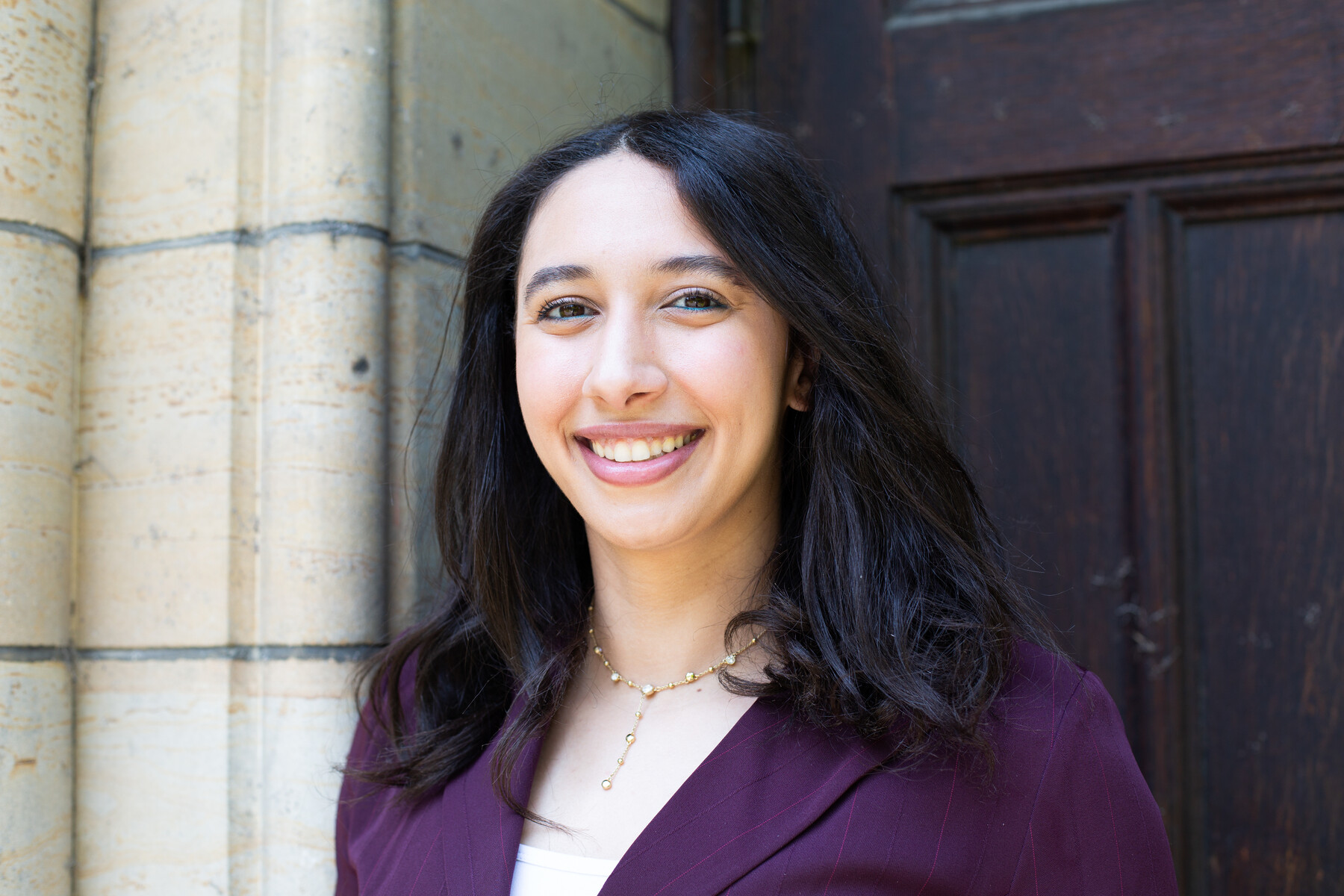
Samiha Mohsen
Up next: Dermatology, University of Calgary
Growing up in Egypt, I was surrounded by the world of medicine. Both my parents were doctors, and I had the privilege of witnessing the deep bonds they formed with their patients. Their passion for healing, their late-night calls, and the quiet pride they took in making a difference left a lasting impression on me. While their path planted the seed, it was my own curiosity that made it grow. I fell in love with science early, and through research, I discovered the thrill of asking hard questions and finding answers that could help people. My journey eventually brought me to Canada for my master’s and medical training, where my commitment to becoming a physician only deepened. Choosing medicine felt like coming home to everything I valued and provided me with the chance to make meaning in times that matter in people’s lives.
I’m most passionate about being there for patients. Holding their hands through moments of distress. Offering answers when I can. And most importantly, making sure they know they’re not alone facing something chronic or acute. That human connection means everything to me.
There have been many meaningful moments during my time at Temerty Medicine, but two stand out.
One was winning the Canadian National Team Championship with the Varsity Blues swimming team in 2021. I’ve been swimming competitively for almost 20 years, and while swimming has always felt like a personal journey, this win helped me see the sport in a completely new way. Contributing to a team victory, after all the early mornings and tough training sessions, was incredibly special. It wasn’t about individual medals. It was about coming together, pushing each other, and sharing something we had all worked so hard for. I’m incredibly thankful for my coaches, Byron and Linda, and for the faculty at U of T who supported me in balancing my goals as both an athlete and a medical student. That kind of encouragement meant more than I can put into words and I hope to continue committing to providing the same holistic mentorship.
The second highlight was getting to serve as class president and organizing our first in-person class-wide event. After so much time learning virtually, it felt important to bring people together and rebuild a sense of community. With over 300 students in our class, I loved finding ways to help us connect, laugh, and create memories outside the classroom. Getting to know my classmates not just as future doctors, but as people, was one of the most rewarding parts of med school.
I fell in love with almost every rotation during clerkship. I loved working with my hands in surgery, caring for patients of all ages, and using clinical reasoning in internal medicine. Dermatology brought all of that together, with the added challenge and beauty of viewing the skin as a window into what’s happening inside the body. I was also struck by how visible and distressing skin disease can be. Many internal conditions stay hidden, but dermatological illnesses are often right on the surface and can deeply affect a person's confidence, comfort, and quality of life. This felt like a meaningful way to contribute.
I’m both excited and a little nervous to take on the added responsibility of residency and continue building my knowledge and skills. I look forward to growing into someone patients and colleagues can depend on, while continuing to learn every day.
Advice for incoming students: You absolutely deserve to be here. You have what it takes to become an incredible physician. Be yourself, and trust that the right mentors and the right field will find you. Go for the specialty you love, whenever that moment of clarity comes, and don’t let fear of not matching stop you from chasing your dream. If you need a sign, then here it is. I BELIEVE IN YOU. GO get your dream.
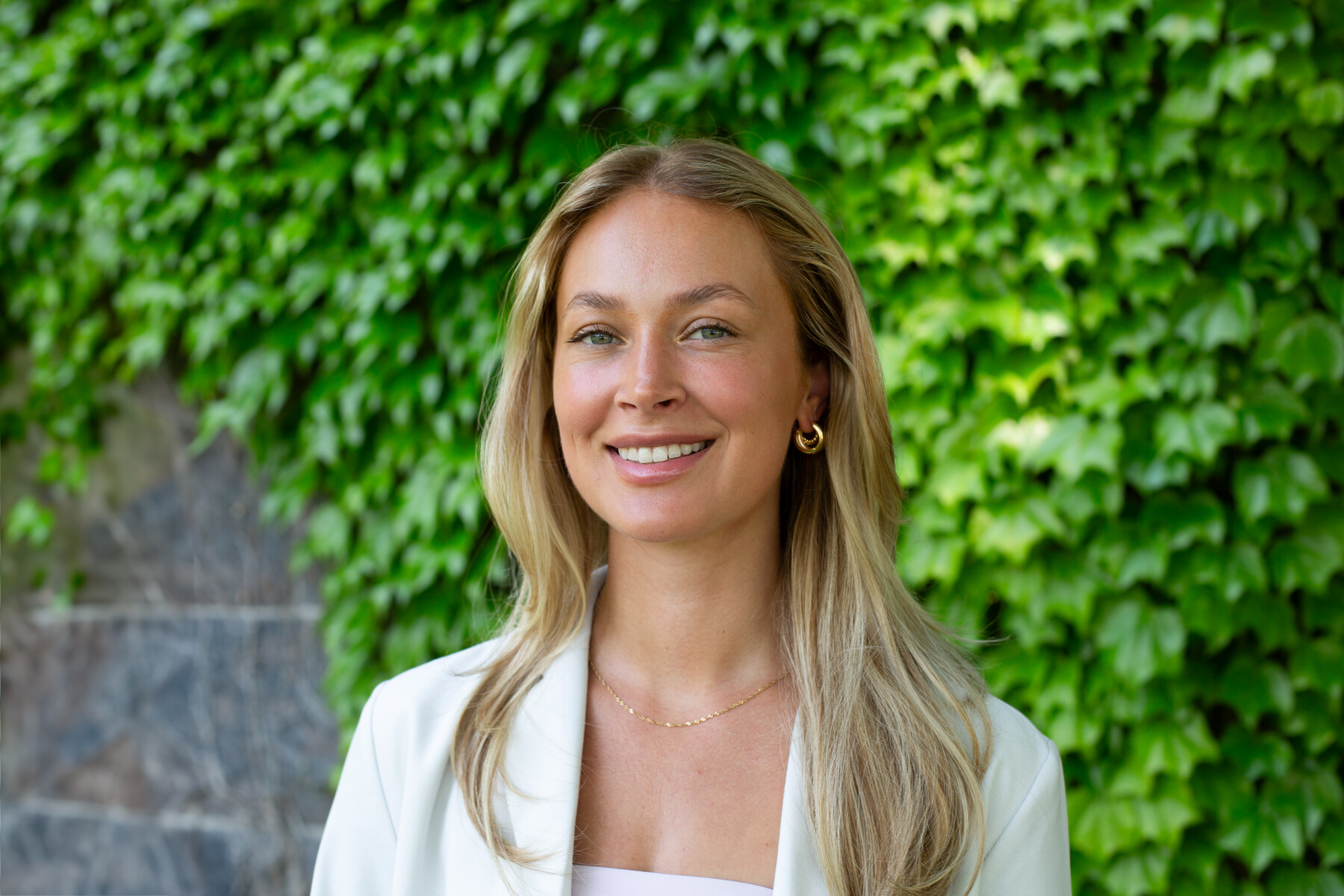
Bianka Bezuidenhout
Up next: Neurosurgery, University of Toronto.
My journey into medicine began long before I ever stepped into a hospital. I was born and raised in South Africa, where health care was often a privilege, not a given. From a young age, I witnessed the devastating impact that disparities in access and quality of care could have on individuals. That environment planted the first seed of curiosity and a desire to make a difference.
As I grew older, my path became more personal. I’ve walked alongside family members through long, complex health-care journeys, navigating systems, translating medical information, and sometimes just being there during long nights when no one else could be. I’ve also had my own experiences with the health-care system, which taught me firsthand how vulnerable it feels to be on the other side of the stretcher. Those moments left an imprint: medicine wasn’t just something I wanted to study, it was something I had lived.
At my core, I’ve always been drawn to helping others and making a meaningful impact. I searched for a career that was dynamic, intellectually stimulating, hands-on, and rooted in real human connection. Medicine offered all of that. It’s a field where I get to problem-solve every day, adapt to constant change, and be part of someone’s life at a moment that truly matters. That sense of purpose is what ultimately guided me to become a physician.
The true highlight of medical school, for me, has been the people. I’ve moved many times in my life, across countries and cities, and I’ve come to learn that what makes a place meaningful isn’t the buildings or resources, it’s the community you build within it. At Temerty, I found that community. I’ve made lifelong friends, found mentors who have shaped how I think and care, and had the privilege of mentoring others in return. These relationships have become the foundation of my medical journey, and they’re what I’ll carry with me long after graduation.
Throughout these four years, I’ve also had the chance to stay engaged with causes I care about: from continuing my work with the IgNITE Case Competition to running summer programs like STEAM-D, where we mentored youth from underrepresented communities into STEM. I was fortunate to contribute in ways that extended beyond the classroom. Further, serving on student council gave me the chance to advocate for my peers and help shape our collective experience. Being part of the yearbook creation was a particularly full-circle moment. Looking back at our memories as a class, seeing how far we’ve come from our first-year selves, and recognizing just how much we’ve grown, together. These initiatives allowed me to stay grounded in advocacy and education, and reminded me that medicine is just as much about community impact as it is about clinical care.
On the clinical side, I was exposed to a wide breadth of specialties and patient populations that pushed me to grow. Clerkship was a transformative period where I saw myself gain confidence, resilience, and clarity. It challenged me to become a better version of myself, not only as a future physician, but as a teammate, communicator, and advocate.
I’m thrilled to be starting my residency in neurosurgery at the University of Toronto. Throughout medical school, I explored many different paths, but the moment I walked into a neurosurgery OR, I knew this was exactly where I wanted, and needed, to be.
I’m passionate about the intersection of medicine and identity, how disease affects not just the body but the person, their goals, and their sense of self. Especially in neurosurgery, preserving or restoring that sense of self is everything.
I’m looking forward to stepping into the role of being someone’s doctor. After years of learning, observing, and preparing, it’s time to take the next step. I’m excited to be part of a team, to care for patients with growing responsibility, and to continue learning, not just from textbooks or lectures, but from every case, every challenge, and every person I meet along the way.
As the first doctor in my family, this moment is deeply personal. I know what it’s like to navigate systems without a medical background, to feel lost in health-care spaces that aren’t built for everyone. That perspective drives me to use this new privilege for good. I hope to continue expanding the volunteer and mentorship initiatives I’ve been part of. Whether it’s opening doors for students interested in health care, or supporting youth who are exploring entirely different paths. Just as importantly, I want to be an advocate for patients: helping people feel seen, heard, and supported as they navigate a health-care system that can often feel overwhelming. Wherever I can, I want to pay forward the support I received, and help others believe that they, too, belong in spaces they’ve never seen themselves represented in.
Advice for incoming students: Hold on to who you are outside of medicine. It’s easy to let this journey consume you, but the parts of you where you don’t wear a stethoscope will make you a better doctor. Be curious, be kind, and know that no one expects you to know everything, just to care enough to learn.